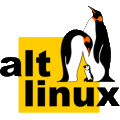Unlocking Your Cluster: Top PelicanHPC Alternatives for HPC
PelicanHPC is a Debian-based live CD image designed to simplify the setup of high-performance computing clusters. It allows a front-end node to boot from a CD, with compute nodes booting via PXE, all sharing the same consistent file system. While effective, users often seek PelicanHPC alternative solutions for greater flexibility, specialized features, or broader community support. This guide explores some of the best alternatives to PelicanHPC, catering to various HPC needs.
Top PelicanHPC Alternatives
If you're looking for different approaches to managing your high-performance computing environment or exploring volunteer computing, these alternatives offer robust solutions beyond PelicanHPC's specific live CD approach.

Debian
Debian is a free and open-source operating system that serves as the foundation for PelicanHPC itself. As a direct alternative, Debian provides unparalleled flexibility for setting up HPC clusters from scratch. It is available on Free, Open Source, Windows, Linux, Windows S, BSD, and Self-Hosted platforms. Its stability, customizable nature, robust package manager, and focus on security make it an excellent choice for building highly tailored HPC environments, offering more control than PelicanHPC's pre-configured image.

BOINC
BOINC (Berkeley Open Infrastructure for Network Computing) is a free and open-source software platform for volunteer computing and desktop grids. While not a direct cluster management system like PelicanHPC, BOINC offers a unique distributed computing approach, allowing users to harness collective computational power for scientific data analysis. It's available on Free, Open Source, Mac, Windows, Linux, and Android platforms, making it a powerful alternative for those interested in leveraging widespread computing resources rather than a dedicated local cluster.

Pop!_OS
Pop!_OS is a free and open-source Linux-based operating system designed for creators and developers, built on Ubuntu. While not specifically for HPC clusters, its robust Linux foundation, automatic window tiling, and focus on stability make it a strong candidate for individual workstation nodes within a cluster or as a powerful front-end. Its beginner-friendly nature and regular updates make it an appealing choice for those seeking a modern and reliable Linux environment on the Free, Open Source, Linux platform, offering a more user-friendly alternative to a barebones Debian setup.

Apache Mesos
Apache Mesos is a free and open-source cluster manager that simplifies running applications on a shared pool of servers. Unlike PelicanHPC's specific focus on live CD booting, Mesos provides a more generalized framework for resource management across multiple machines. Available on Free, Open Source, Mac, and Linux, it's an excellent PelicanHPC alternative for those requiring more dynamic resource allocation, virtualization features, and a scalable platform for various workloads within their cluster.

Void Linux
Void Linux is a free and open-source general-purpose operating system based on the monolithic Linux kernel. Known for its lightweight nature and unique package manager (XBPS), Void Linux offers a minimalist yet powerful base for building HPC nodes. It's available on Free, Open Source, Linux platforms, and its efficiency can be beneficial for optimizing resource usage on compute nodes, providing a distinct, performance-oriented PelicanHPC alternative for those who prioritize a lean system.

ALT Linux
ALT Linux is a free and open-source set of RPM-based operating systems built on the Linux kernel and the Sisyphus packages repository. Available on Free, Open Source, Linux, ALT Linux provides a different package management approach compared to Debian-based systems like PelicanHPC. Its focus on stability and inclusion of various tools, including rescue capabilities and network tools, makes it a robust alternative for setting up reliable Linux-based HPC environments.

Folding@home
Folding@home is a free collaborative effort that utilizes a network of individual computers for distributed computing research to combat diseases. Similar to BOINC, it's not a cluster management system but a platform for contributing computational power. Available on Free, Mac, Windows, Linux, and Docker, Folding@home is an excellent alternative if your goal is to contribute to large-scale scientific projects using idle computing resources rather than setting up a dedicated private cluster like with PelicanHPC.

GridRepublic
GridRepublic is a free and open-source customized version of the BOINC software, designed to simplify participation in volunteer computing. It offers a more accessible entry point for average computer users to engage in distributed and parallel computing. Available on Free, Open Source, Mac, Windows, Linux, and Web platforms, GridRepublic serves as an easier-to-use alternative for individuals looking to contribute to large-scale projects, contrasting with PelicanHPC's focus on private cluster setup.

Charity Engine
Charity Engine is a free and open-source platform that breaks down enormous computing jobs into smaller pieces for home PCs to work on as background tasks. Available on Free, Open Source, Mac, and Windows, it represents another distributed computing model. While it doesn't offer cluster management like PelicanHPC, it's an interesting alternative for those looking to contribute their spare computational power to charitable causes, leveraging a different paradigm than traditional HPC clusters.

ROSA Linux
ROSA Linux is a free and open-source Linux operating system and distribution developed by a Russian company. Available in various editions for Free Personal, Open Source, Linux, and Mandriva Linux platforms, ROSA Linux offers a complete operating system environment. While not specifically designed for HPC, its Linux foundation and focus as an operating system make it a viable base for individual cluster nodes or front-end machines, providing a feature-rich and stable alternative to PelicanHPC's minimalist live CD approach.
Choosing the right PelicanHPC alternative depends on your specific needs, whether you prioritize fine-grained control over your cluster's operating system, seek a more user-friendly setup, or wish to contribute to global distributed computing efforts. Explore these options to find the best fit for your high-performance computing goals.